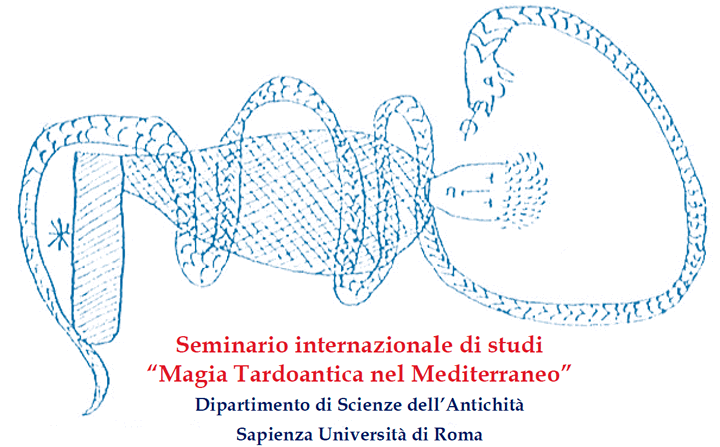AIEGL – Association Internationale d’Épigraphie Grecque et Latine
News and Events
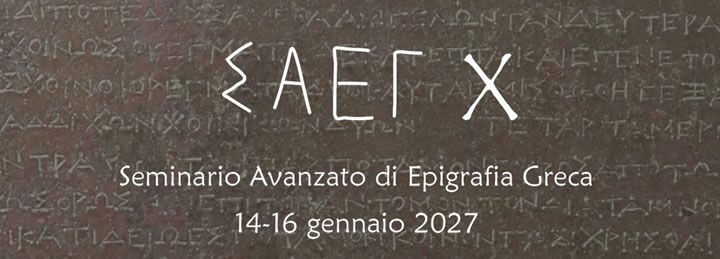
SAEG X
Il Seminario Avanzato di Epigrafia Greca (SAEG), giunto alla sua decima edizione (dopo le prime due tenutesi presso l’Università di Bologna e le successive presso gli atenei di Napoli, Milano, Torino, Venezia, Roma-Sapienza, Perugia e Roma Tre), è un appuntamento ormai tradizionale che, per la comunità scientifica costituisce un’importante occasione di dialogo sui temi dell’epigrafia greca.
Giovanna Sotgiu (1925–2026)
On January 1st 2026 Giovanna Sotgiu left us, at the age of 100. She was the first full professor of Latin Epigraphy in Italy, at the university of Cagliari, since 1970, and spent all her life studying and publishing the inscriptions from Sardinia and North Africa. Her academic legacy will survive for a long time.

Call for Papers: Tenth Epigraphy.info Workshop
University of Graz, Austria — 24–26 March 2026
The tenth Epigraphy.info workshop will be dedicated to the memory of Winfried Kumpitsch and will feature a special thematic focus on Sacred Spaces, Sacred Words: Digital Approaches to Religious Epigraphy, an area to which Winfried devoted much of his scholarly work and research.
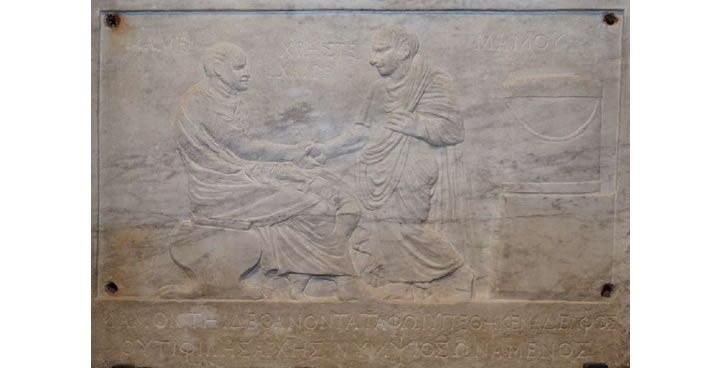
Microstories in Verse
Identity, Education and Memory in Greek and Latin Epigraphic Poetry
International Conference
Università degli studi della Campania “Luigi Vanvitelli”
5–7 November 2025

Epilemma III
Epigraphy and Lexicography in Dialogue
Internationales Kolloquium
Eine Veranstaltung des Corpus Inscriptionum Latinarum (CIL)

Iscrizioni messapiche e greche nei contesti dell’Athenaion di Castrum Minervae
Scriviamo poi per ricordarvi che martedì 07 ottobre, alle ore 17.00, si terrà l'undicesismo Seminario di “Officina di IG XIV2”.
Read more … Iscrizioni messapiche e greche nei contesti dell’Athenaion di Castrum Minervae
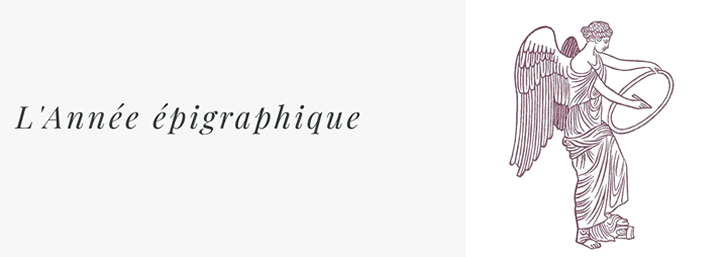
L’Année épigraphique 2022
Mireille Corbier fait savoir que L’Année épigraphique 2022 (1702 notices et 1078 pages dont 234 pages d’index) a été publiée en août 2025 et est disponible.

The Winners of the Géza Alföldy Stipends 2025
The tres homines praemiis dandis awarded the Géza Alföldy Stipends 2025 to:
Jessica Lamont (Yale University) and Federica Gatto (Università degli Studi di Urbino “Carlo Bo”).

Gianfranco Paci (1946–2025)
Il giorno 19.08.2025 è venuto a mancare il Prof. Gianfranco Paci, già Cattedratico di Epigrafia romana e Storia romana, Professore Emerito dell'Università di Macerata dal 2015.
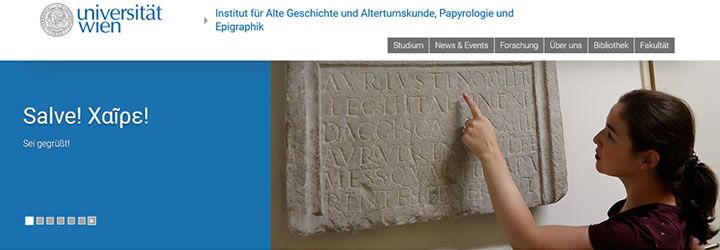
Stellenausschreibung am Institut für Alte Geschichte der Universität Wien
Wir möchten Sie auf die Ausschreibung zur Professur Griechische Geschichte, Altertumskunde und Epigraphik am Institut für Alte Geschichte der Universität Wien aufmerksam machen.
Read more … Stellenausschreibung am Institut für Alte Geschichte der Universität Wien
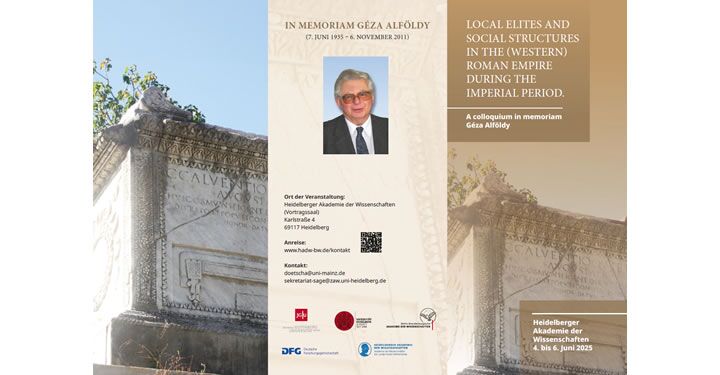
Local elites and social structures in the (western) Roman empire during the imperial period
A colloquium in memoriam Géza Alföldy
Heidelberger Akademie der Wissenschaften
4. bis 6. Juni 2025
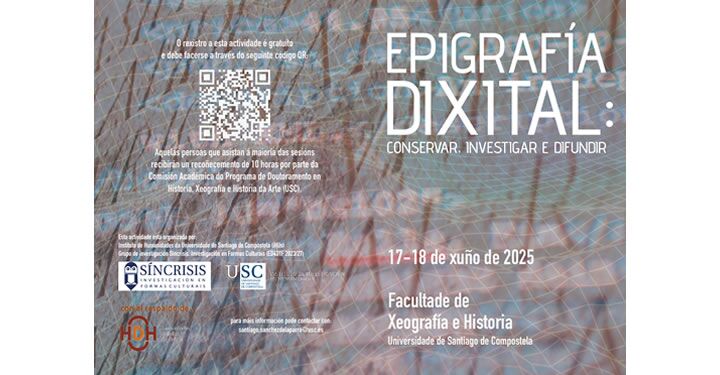
Epigrafía Dixital
Conservar, investigar e difundir
17–18 de xuño de 2025
Universidade de Santiago de Compostela


